Software
Here are some of the software projects that I have been involved in, mostly from my previous appointment at the University of Oxford. Please contact me if you have any desire to use these programs. Enjoy...
TRI2
Originally named 'Time Resolved Imaging', TRI2 not only incorporates processing for time-domain FLIM data but also for RGB spectral unmixing, foci counting and other batch processing, formatting, printing and export functions. It's all built on a 'workspace' framework to make it easier to try out different processing functions on images.
The time-resolved image processing functions still remain the core of the program and Levenberg-Marquardt fitting routines are implemented for multiple lifetime extraction. Novel Bayesian functions are under development. See also the TRI2 web site and forum.
The core fitting routines from TRI2 are now open source in the FLIMlib library. These include RLD, Levenberg-Marquardt and non-negative least squares. The library is written in c but has wrappers for Java.
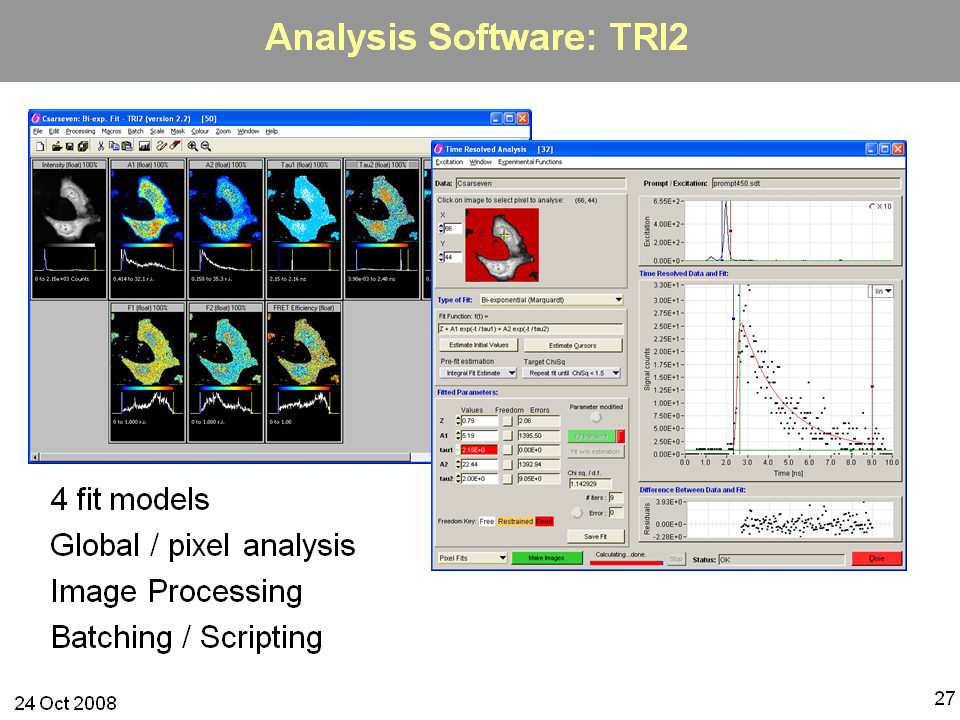
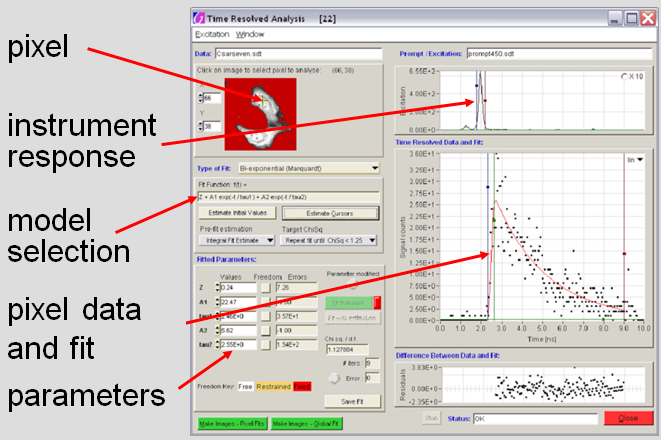
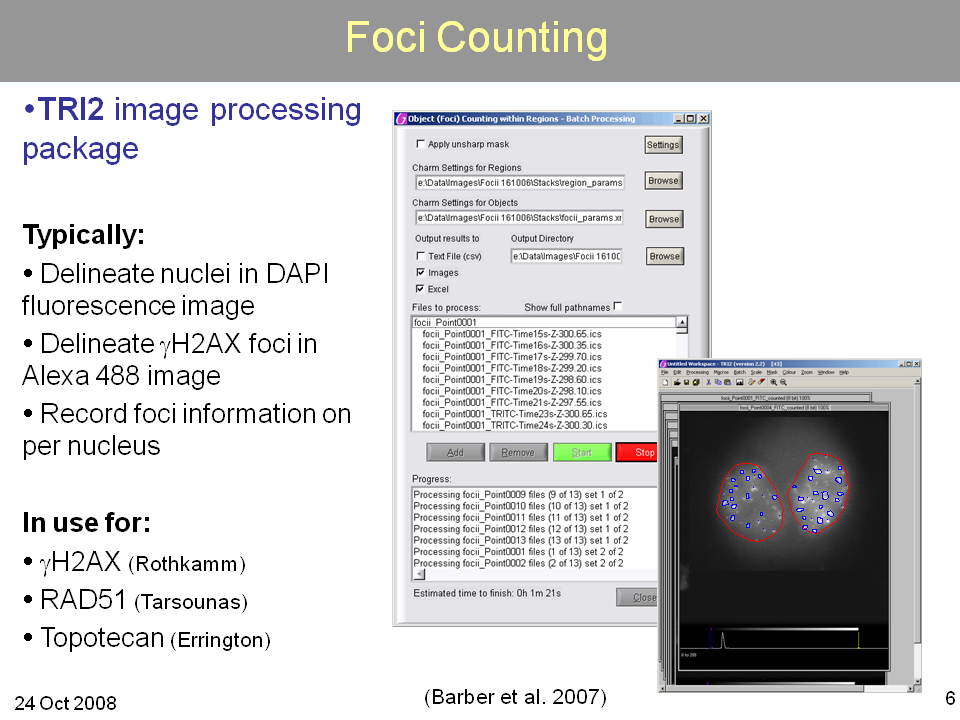
Used by: Oxford University UK, King's College London UK, Cambridge University UK,
Queen Mary University of London UK, Cancer Research UK, London, Institut Curie, France,
Klinisk Institut, Denmark, University of Wisconsin Madison USA, Harvard Medical School USA,
Shenzhen University China, University College London UK.
Credit to: P Barber, G Pierce, M Rowley, J Gilbey, R Locke, R Edens, B Vojnovic, S Ameer-Beg.
Written in C with LabWindows/CVI libraries. Tested on Win XP, Vista, 7.
Windows installer available.
Clinical Spectral Imaging - video pipeline in GStreamer
Many GStreamer video source and processing elements written to form a low-latency video pipeline. As well as embedded code for ARM and control code on Linux x64 and embedded. Pictures and videos to come.
GStreamer elements released under GPL so far:
- Point Grey BlackFly camera source element
- Lumenera camera source element
- uEye camera source element
- Gaussian smoothing filter element
- Pixel binning filter element
Microscopy Automation
Automated microscopy platforms aimed at automated epi-fluorescence and fluorescence lifetime microscopy. Automated functions can be scripted using Python. Innovative features such as a 'real-time overview' and fast 'stage-scanning' to produce a map of the slide or plate in use. For use with commercial (Nikon 90i) and in-house built systems. Fluorescence lifetime microscopy (FLIM) via TCSPC and in-house designed and build laser scanners with zoom and panning functions. Please download our paper on the Open Microscopes for details.
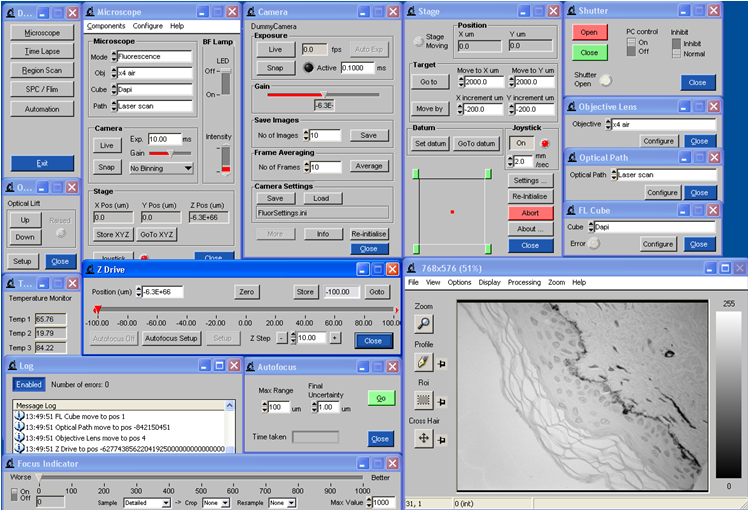
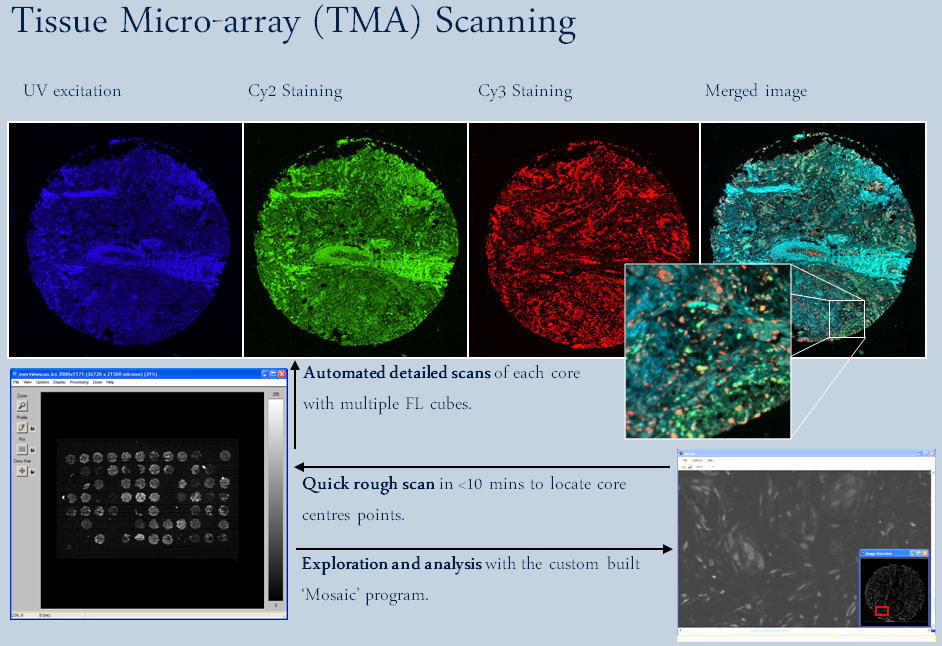
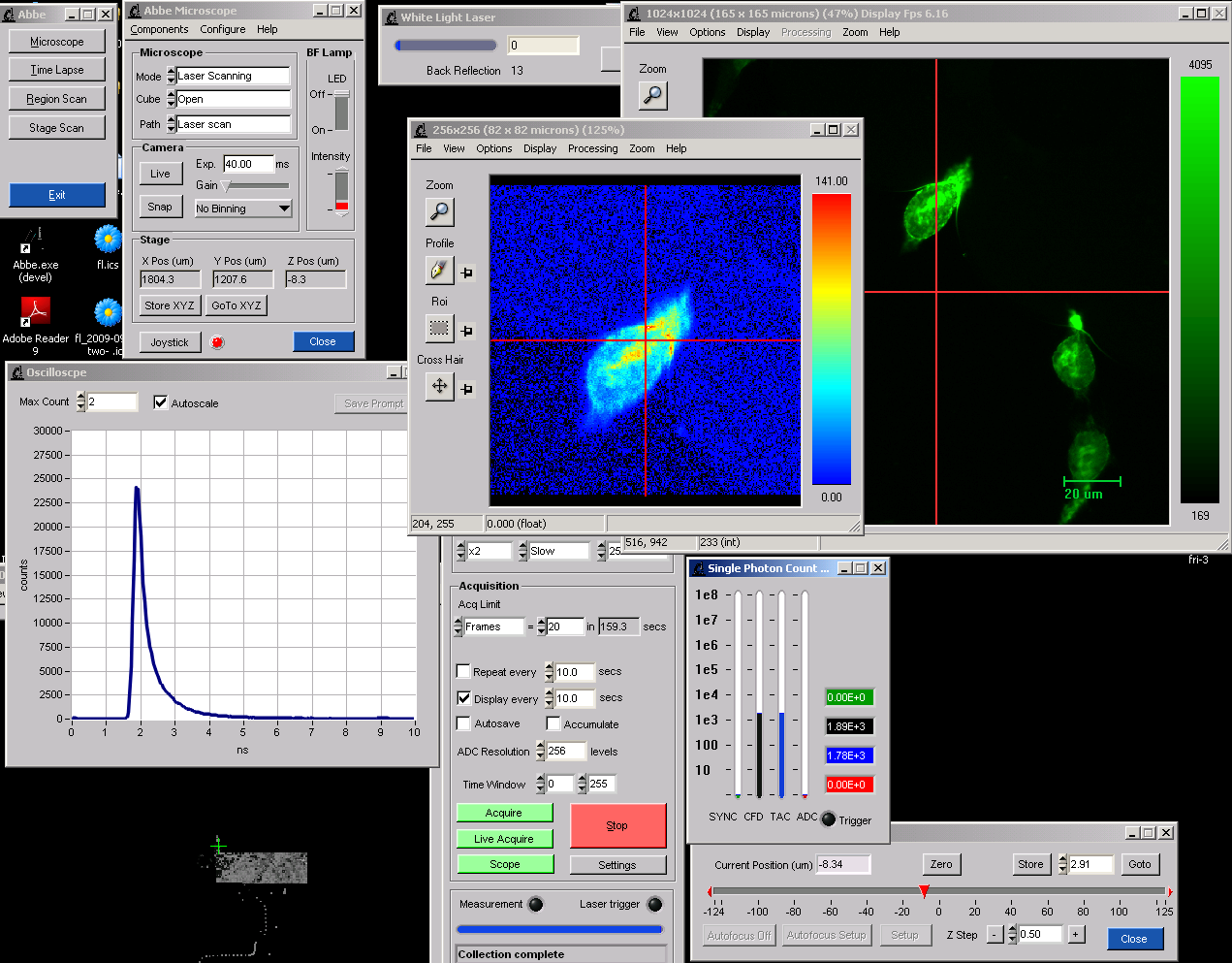
Used by: Oxford University UK, King's College London UK, Surrey University UK.
Credit to: P Barber, G Pierce, R Locke, R Newman, B Vojnovic, I Tullis.
Written in C with LabWindows/CVI libraries. Tested on Win XP.
Mosaic
The Mosaic program allows images to be viewed as a mosaic. They can be stitched together (correlated so that edges match) and blended (so that edges become invisible). It works by loading only the images required at any one time and so has a small memory footprint yet can handle mosaics that are Gigabytes in size.
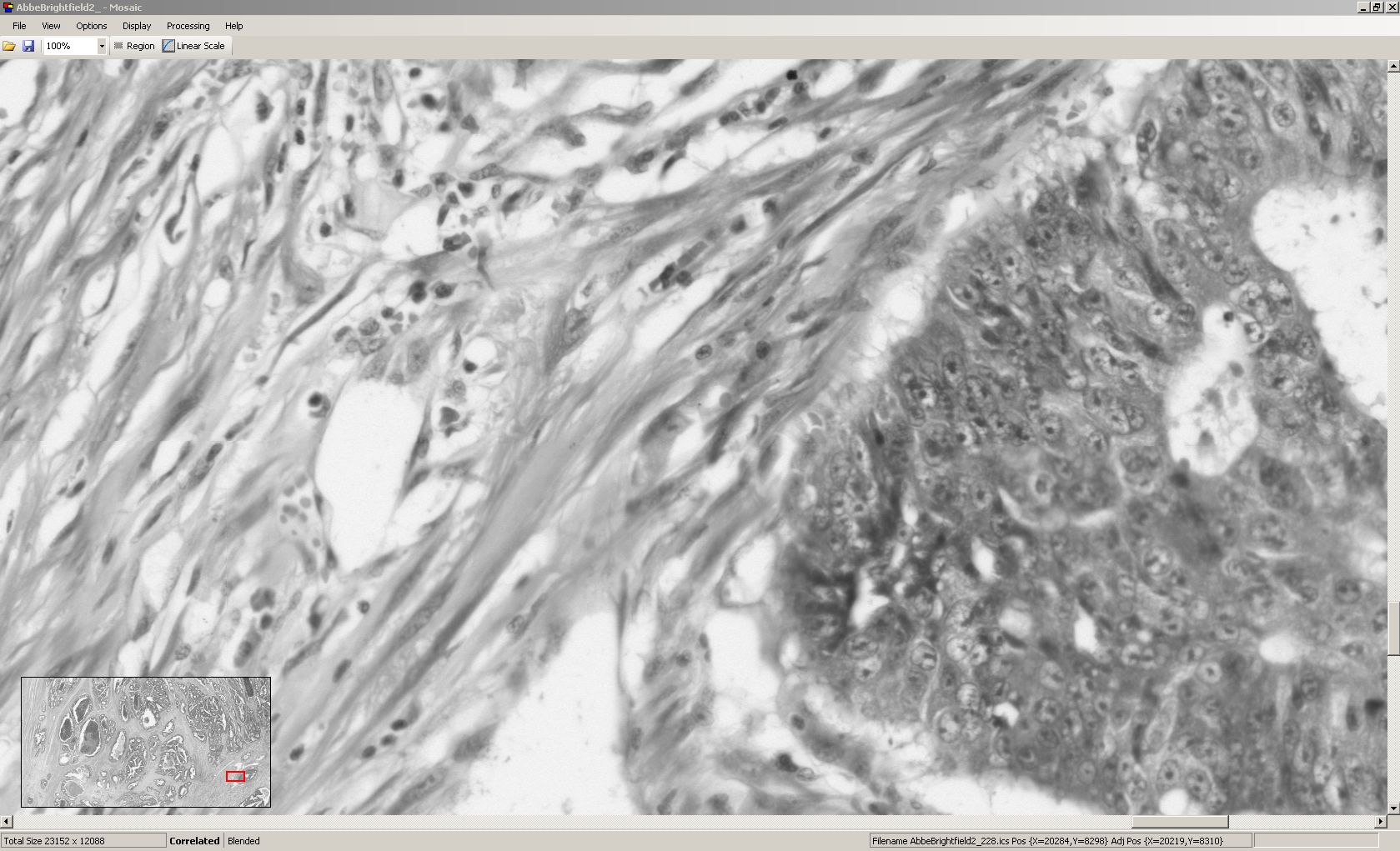
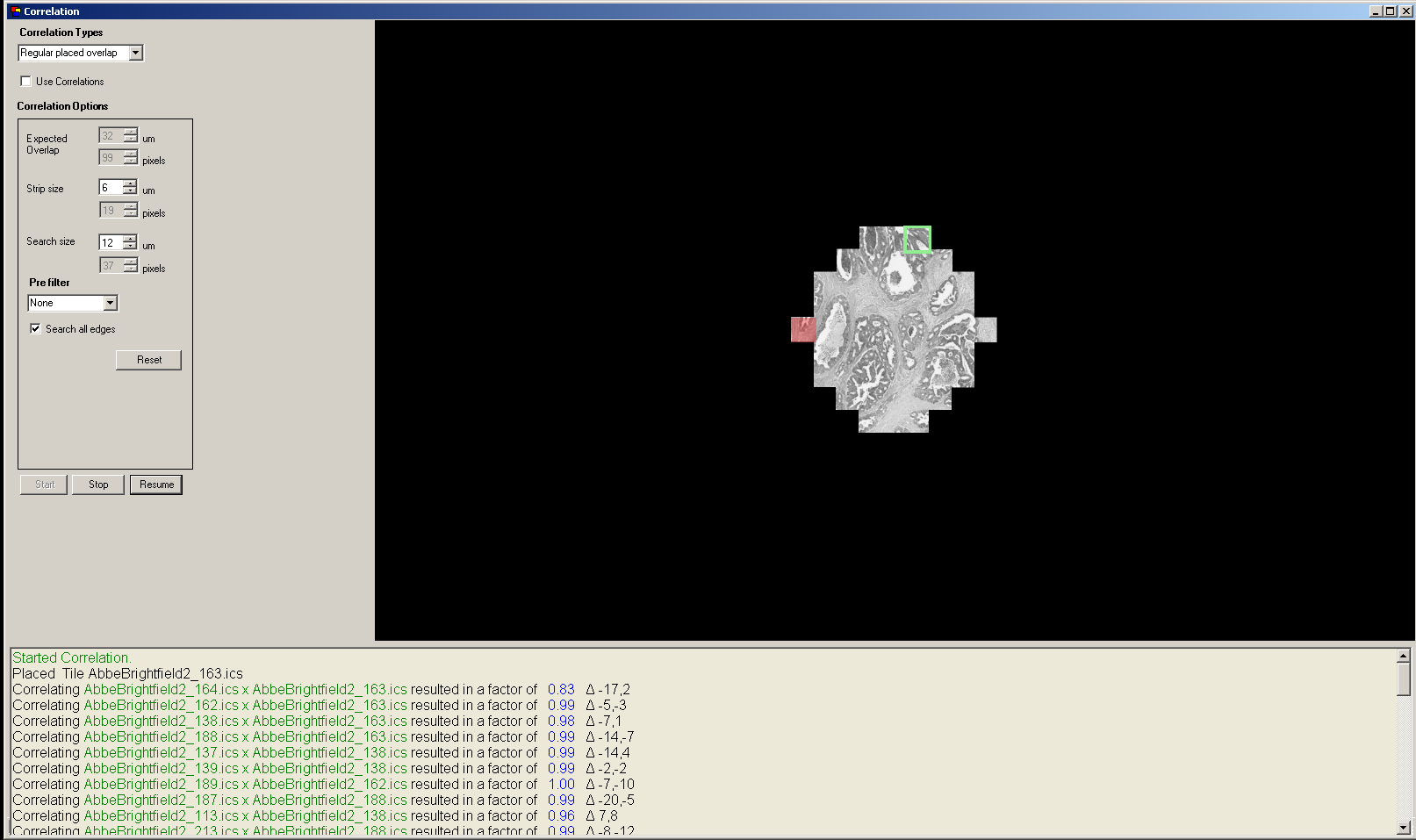
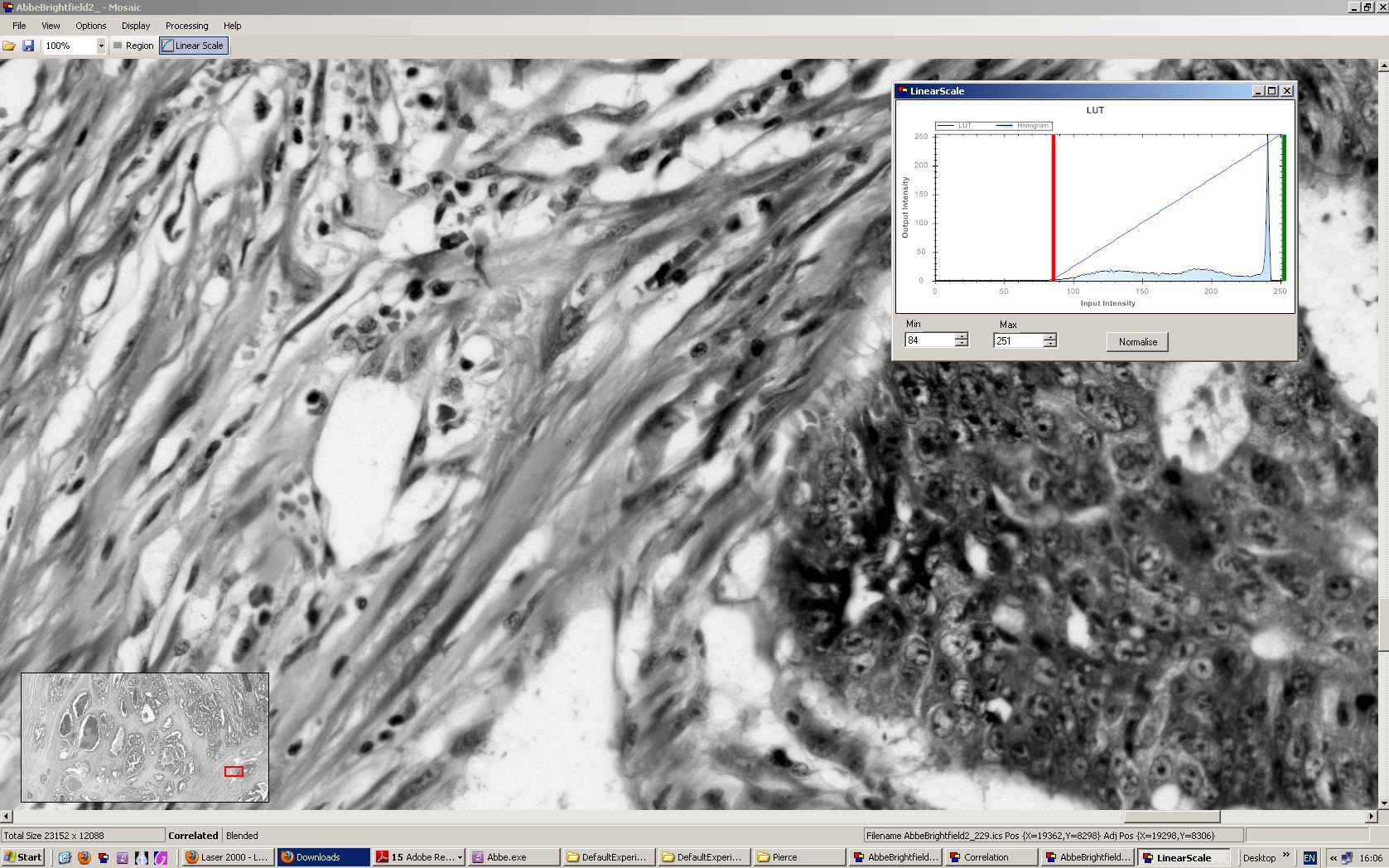
Credit to: G Pierce, P Barber, R Locke, V Rankov, B Vojnovic.
Written in C#. Tested on Win XP, 7.
Windows installer available.
Source code on GitHub
Trace3D
Written to aid analysis of vascular networks, it includes semi-automated tracing and statistical functions such as vessel length, diameter and tortuosity.
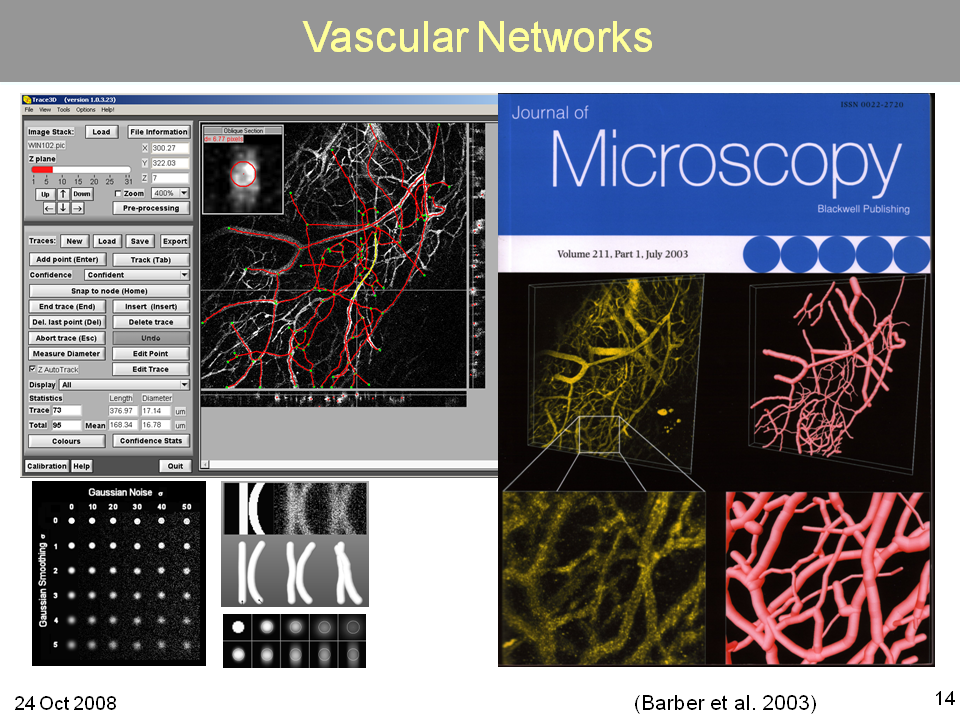
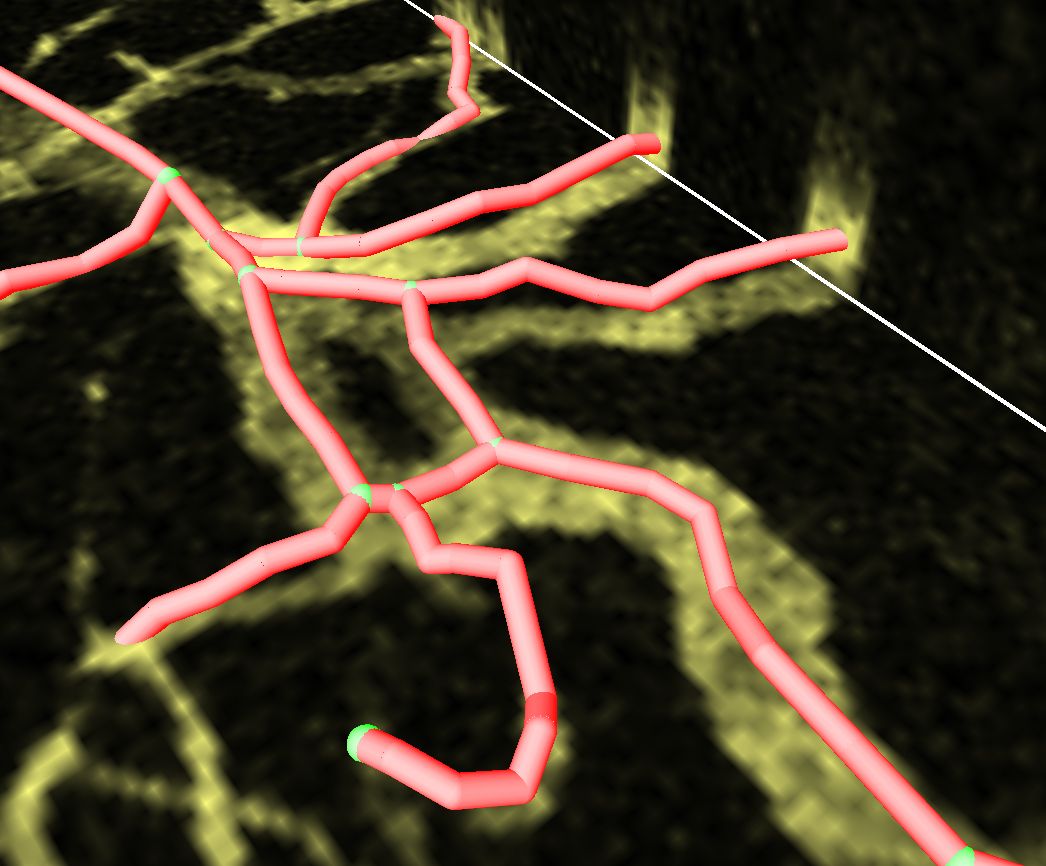
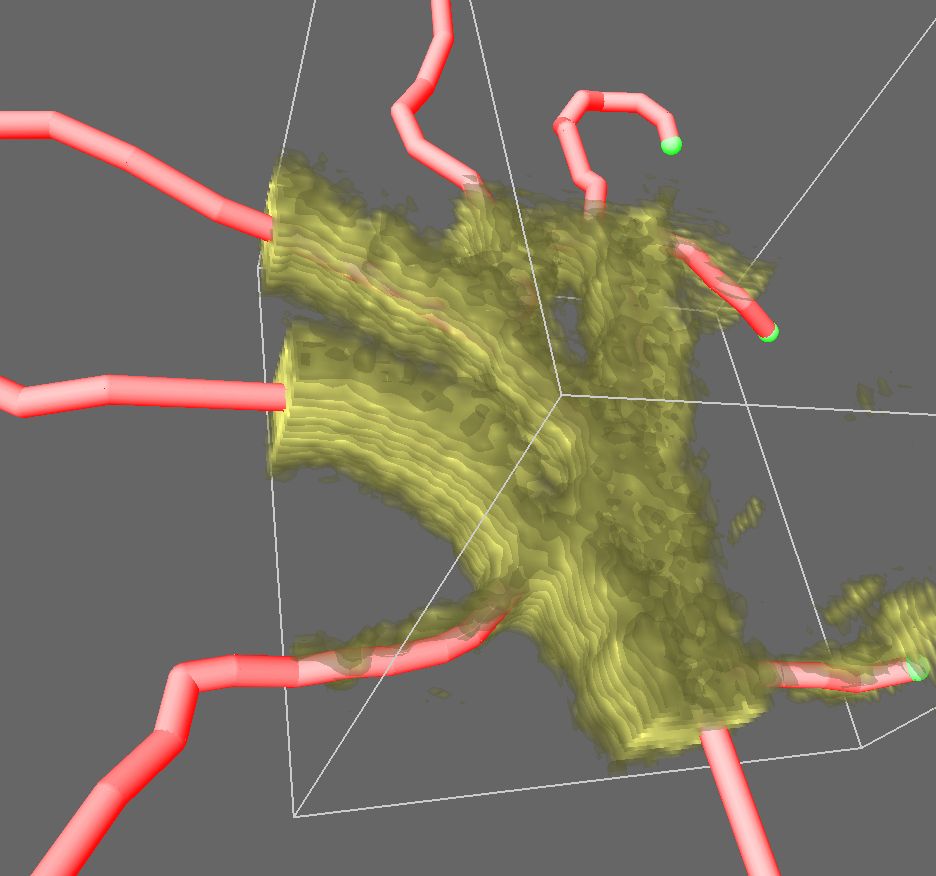
Credit to: P Barber
Written in C with LabWindows/CVI libraries. Tested on Win XP.
Windows installer available.
Spectral Imaging
Software coupled to microscope hardware to display and spectrally unmix about 50 wavelength channels across the visible spectrum.
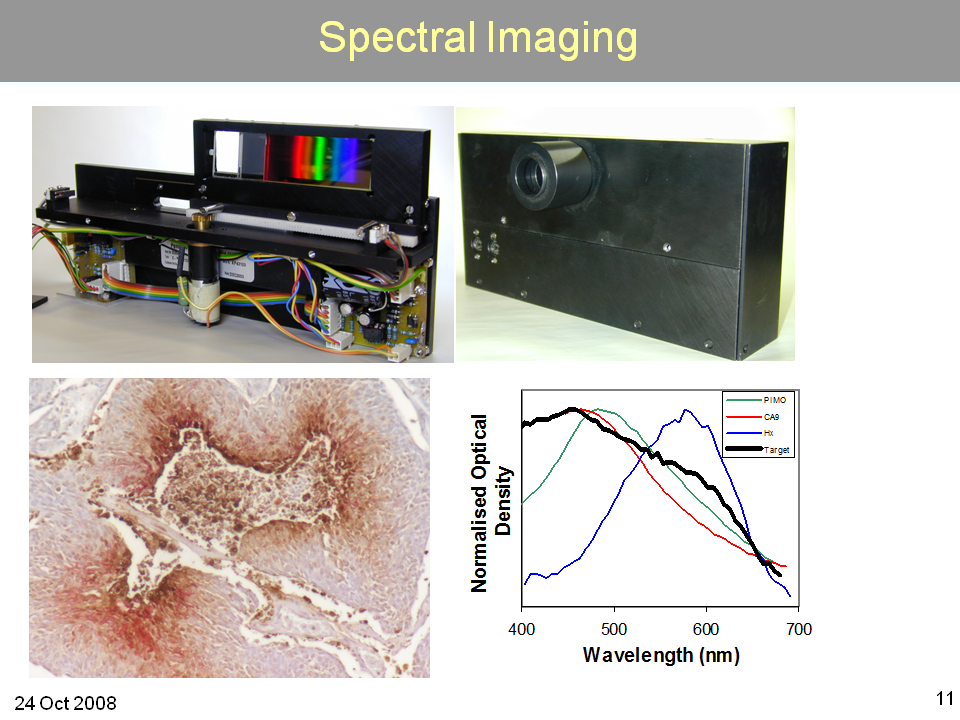
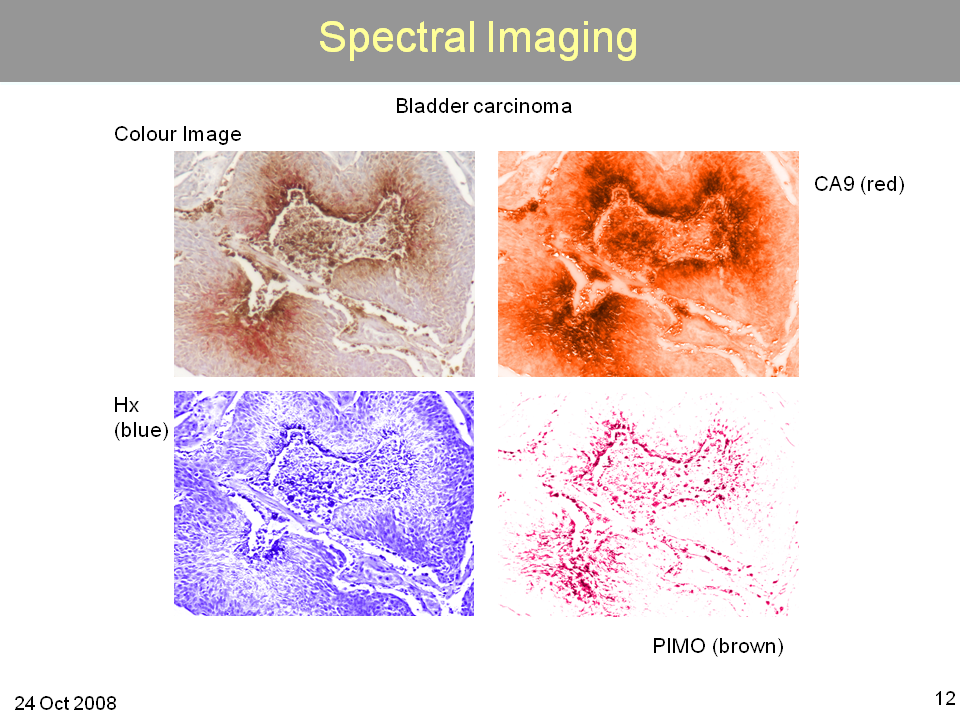
Credit to: P Barber
Written in C with LabWindows/CVI libraries. Tested on Win XP.
Windows installer available.
Cell Segmentation
Segmentation of confluent actin stained cells using a neural network based on the cells radial signature.
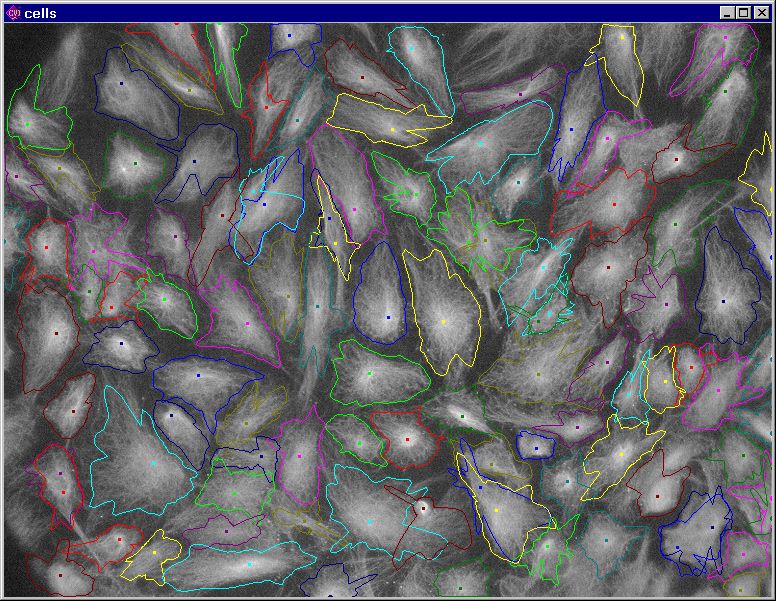
Credit to: P Barber
Comet Analysis
The 'comet' assay is used in radiation biology to measure DNA damage. This is microscope control software and comet analyisis software.
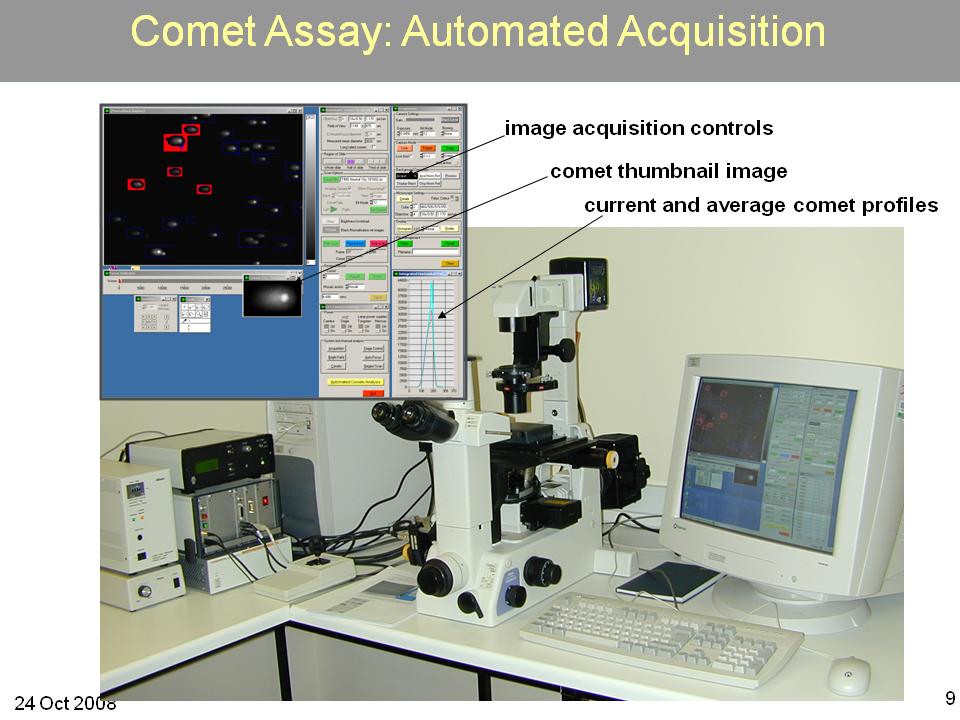
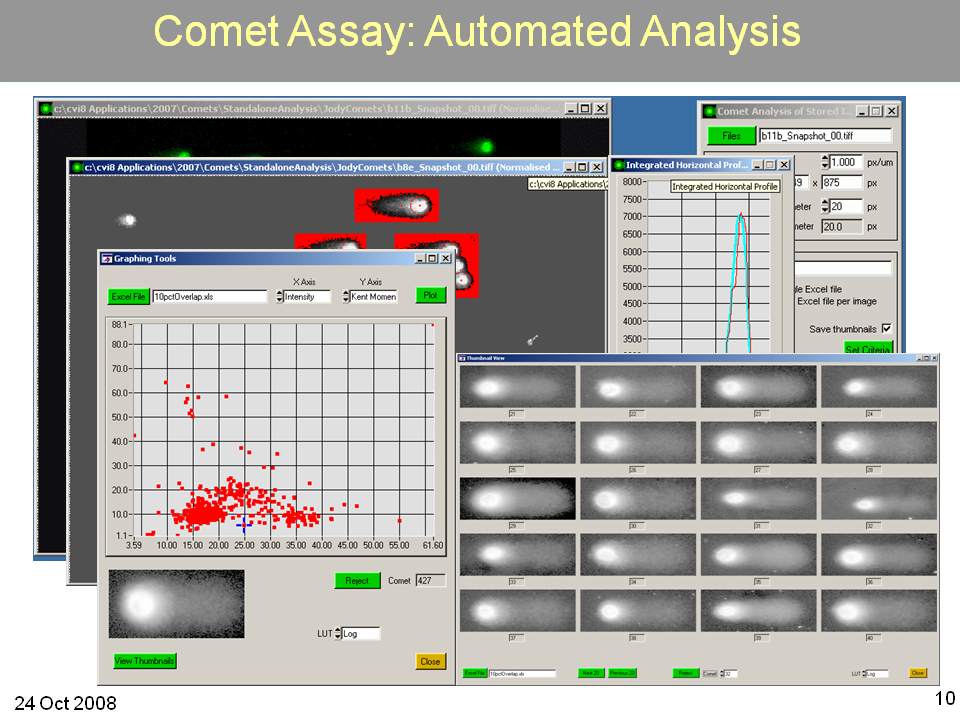
Credit to: R Locke, P Barber
Written in C with LabWindows/CVI libraries. Tested on Win XP.
Colony Counter
Based on our CHARM algorithm it counts diffuse colonies. There is commercial hardware based on this now for sale from Oxford Optronix Ltd.
Credit to: P Barber, L Huang
Written in C with LabWindows/CVI libraries. Tested on Win XP, Vista, 7.
